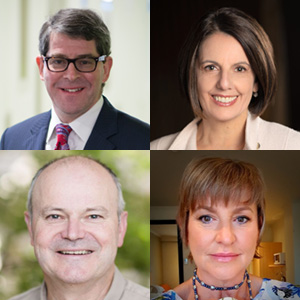Continuing to invest in sustainable industrial techniques will be extremely important in improving the environment and our relationship with it. “Green chemistry” seeks to minimise or eliminate the use or generation of hazardous substances. One of the goals of green chemistry is for the term to completely disappear – it should simply become how we practise chemistry, and make things.
Few Australian companies have a clear view of what their company’s increasing reliance on digital technologies is doing to create carbon emissions. This is not a trivial issue. It has significant implications for regulators, policy makers, company boards, and the rest of us, who increasingly compete with IT companies and data centres for electricity.
Alexander von Humboldt has been referred to as ‘the forgotten father of environmentalism.’ As early as 1844, he wrote that humans change the climate ‘by cutting down forests, by changing the distribution of water bodies, and through the production of large vapour and gas masses at the centres of industry.’ Humboldt also described the greenhouse effect in his opus magnum, ‘Kosmos’.
How can we, as a collective of 7.97 billion humans, ensure healthy people and healthy ecosystems on a healthy planet? The scale and complexity of the task can seem insurmountable; where do we focus our efforts? The SDGs helfpully provide 17 priority goals for improving human lives while protecting the environment, building on decades of work by the UN.
“One of our research goals is to create transparent solar cells with a natural appearance so that they can be used as windows that generate solar power.” For solar window applications, a perovskite film with a thickness of no more than 600 nm is sufficient to achieve maximal light absorption. But reduced thickness also reduces potential power conversion efficiency.








